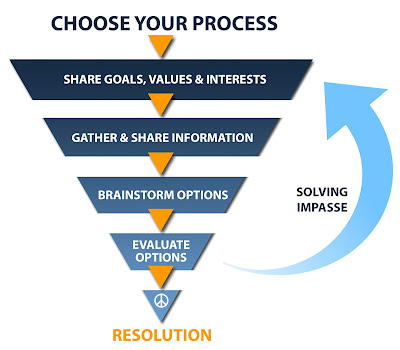The Distinction between Disclosure and Division in Divorce
We encourage our customers not to use controversial joint problem solving to resolve conflicts. A simpler way of saying is that we work with people to talk about their problems and solve them together. We ask our customers to no longer see the other person as an obstacle to overcoming, but to see them as an ally in finding a solution that works for everyone. Consider the benefits of this approach in financial negotiations:
Just like poker players hide their cards when playing a hand, people often assume that the best approach to negotiation is to withhold information in order to get the best result for themselves. This analogy ignores the fact that the rules of poker are designed to have incomplete information and to use hints to gain an advantage. The negotiation rules are often different depending on the context. For example, in a divorce case, the Massachusetts court requires that certain financial information be automatically disclosed, and other information likely to lead to relevant information can be obtained through formal discovery.
In a Massachusetts divorce case, a judge must approve a settlement agreement at every hearing, whether the parties reach an agreement (and file a joint petition) or litigate (over a divorce complaint), and both parties must file a court form Financial report. The financial statements are a sworn statement that is designed to be an accurate, accurate, and complete summary of the income, expenses, assets and liabilities of each person. This format requires basic disclosure of all financial information in any divorce case in Massachusetts.
These rules ensure a level playing field in negotiations and transactions. However, it’s important to understand that disclosing an asset doesn’t necessarily mean it needs to be shared. The division of property in Massachusetts is governed by MGL Chapter 208, Section 34, which defines a number of factors by which the court can determine a fair division, and fair does not necessarily mean equal.
For this reason, we believe it is important to distinguish between disclosure and sharing.
Just because something is disclosed and both people have the same information doesn’t mean they agree on how something should be shared, nor should it mean they have to. Additional information here can help clear up a negotiation and help each side understand the other’s position or goals.
The other person in a conflict is the only other person in the world who has as much information as you do about the problem that is causing the disagreement. All of the professionals you work with will never know as much about your own life as you do. The best problem-solving method should focus on both of you and provide you with an effective way to work together.
In addition to this basic financial disclosure that the court requires in a divorce mediation or collaborative divorce, the guiding principle is that those making decisions should have the same information. Outside the court, mediation and the right to collaborate have their own rules of what to disclose or request. People in conflict are sometimes unsure of what to share and what to withhold, and they may not be clear about the “rules” especially when they fear that disclosing something means it will automatically be shared.
So it’s important to explain the difference between disclosure and sharing. We guide our clients through problem solving together by encouraging them to think about the process as follows:

People may disagree on the implications of information, but having the same information opens up an opportunity to address the areas of disagreement. When an asset or source of income is hidden, people cannot agree on its effects, and if it is later discovered, hiding items can destroy all opportunities for joint problem-solving.
The judicial process is intended to establish specific rules for the disclosure of standard information and to burden the person requesting the information both to be specific and to enforce their requests. This is a necessity in a controversial system where everyone is believed to be trying to hide something. In the area of mediation and collaboration law, we assume a different assumption: people who are willing to commit to solving problems together will also exchange all relevant information in order to work together. We assume that people can turn their common problem into a common solution and that working together is more insightful to find the best possible solutions for everyone.


Comments are closed.